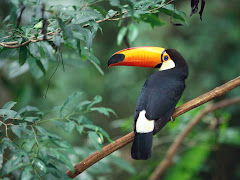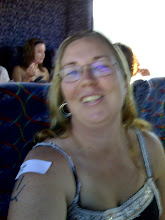Jerome Bruner’s constant thoughts were that education is a process of discovery and that if students could pursue concepts and ideas on their own they would gain a better understanding. Teachers could then engage students in lively conversations and guide them when necessary so they could build their own knowledge rather than be taught which is ideally how we would like our students of today to be. The technology tools we have embraced in this course lead me to believe that Bruner’s thoughts could actually occur in the classroom. All of them take time to discover and be explored and I myself definitely have a better understanding and awareness of them now then six weeks ago but I still have a long way to go.
My personal attitudes and perceptions of this course were not positive at the beginning which I felt was not a good trait for a lifelong learner and future educator. Although the more I got into the course and the tools the more I found myself enjoying it. I must consider this when I am in the classroom because as Lev Vygotsky’s theory reminds us- even though each of us are individuals, my students mental development (thought, language and reasoning process) is a result of his or her environment that they are in. Vygotsky’s theory states these abilities are thought to develop through social interactions with others (especially adults) and therefore represent the shared knowledge. I need to ensure my classroom is an encouraging environment to learn all KLA’s in.
The Early Years Curriculum Guidelines suggest that the Prep to Grade 3 curriculum is based on active learning and incorporates real-life situations, investigation and play. With that in consideration I plan on using several of the technological tools we have learnt about in my next few weeks of practicum. I enjoy using the interactive white board in the classroom and plan to incorporate that into more of my lessons. I have found the interactive whiteboard engages the students as they are mostly visual learners and it also allows them to actively participate and demonstrate their learning to themselves and others. My proposed activities will include the signing in on the board each morning as they really love that, sequencing activities with our garden theme as well as bar graphs and measurement.
Plus I hope to persevere in creating power points and Voki avatars as I feel they could be very useful learning tools for my Prep students. I just need to continue to challenge myself in the creation of them. The EYCG suggests it is the adult’s role to facilitate, scaffold and monitor learning so with that in mind I would also love to incorporate WebQuests, blogs and the interactive quizzes into my classroom teaching. Obviously most of mine would be pictorially presented and I would only be able to be with one or two students at a time to allow for learning to occur but I feel several of my students would enjoy the challenge of attempting ‘a big kids’ task.
In summary, Hargreaves writes we are in the knowledge era and we as educators need to build more networks and partnerships on a local and global scale if we want to succeed. I personally feel this course has opened up communication between me and my peers across the state plus brought attention and more information gathering from people locally and on the other side of the world. As we all know knowledge can very quickly become redundant; practices that once worked have to be abandoned and replaced and we will all need considerable help and support to become better informed teachers today and in the future. I plan to continue to be involved in conversations outside my group of friends and family via RSS feeds to blogs, emails and by joining a group of teachers teaching teachers about technology (http://onlinelearningideas.wetpaint.com) so that I can be constantly updated in new and exciting topics and tools on offer here and overseas.
References:
Early Years Curriculum Guidelines. Retrieved from the Queensland Studies Authority on the 24th of July 2009. http://www.qsa.qld. Edu.au/learning/979.htm
Hargreaves, D. ( 1998). Creative Professionalism: The Role of Teachers in the Knowledge Society. London, England; Demos.
Hollyman, D. Jerome Bruner: A Web Overview. Retrieved the 12th of March 2009 from http://au.geocities.com/vanunoo/humannature/bruner.html.
Mergel, B. (1998). Instructional Design and Learning Theory. Retrieved the 24th of July 2009 from http://www.usaak.ca/education/coursework/802papers/mergel/brenda.htm


No comments:
Post a Comment